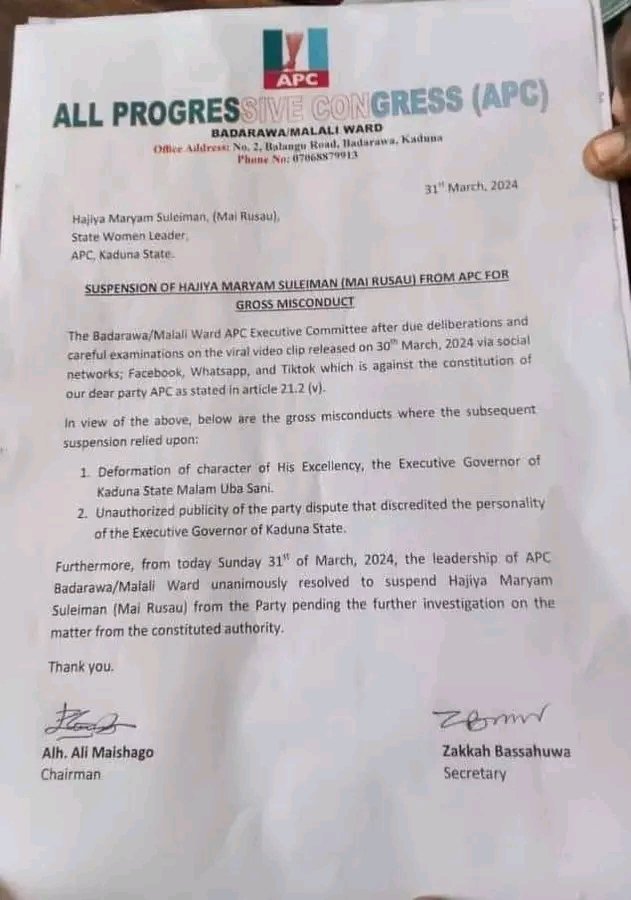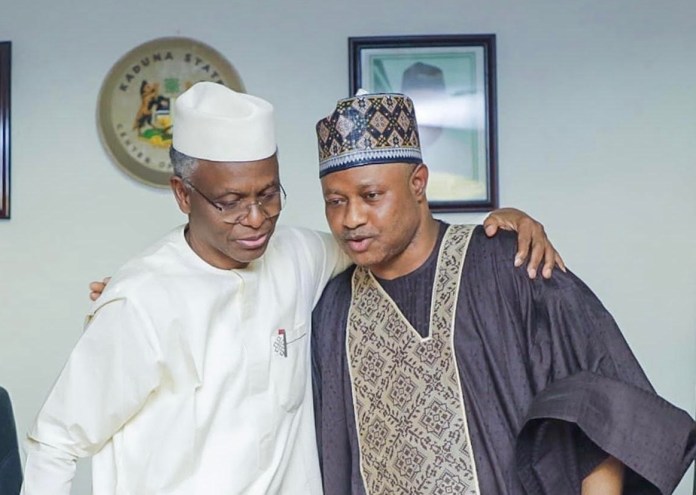The All Progressives Congress (APC) recently made headlines when it suspended its Women Leader, Hajiya Binta Mua’zu, for defending Governor Nasir El-Rufai over the issue of Kaduna’s debt burden. The suspension came after Mua’zu publicly expressed her support for El-Rufai’s handling of the state’s finances, which had sparked controversy within the party.

Mua’zu’s suspension has raised questions about the party’s internal dynamics and the freedom of its members to express differing opinions. Some have criticized the decision, arguing that it stifles dissent and discourages open dialogue within the party. Others have supported the move, citing the need for party discipline and unity in the face of challenging political issues.
The issue of Kaduna’s debt burden has been a contentious one, with critics accusing El-Rufai of mismanaging the state’s finances and burdening future generations with excessive debt. Mua’zu’s public defense of the governor’s actions added fuel to the fire, leading to her suspension from the party.
The incident highlights the complexities of navigating political loyalty and individual conscience within a party structure. It also underscores the challenges of managing internal dissent and differing viewpoints, especially on sensitive issues such as public finances and governance.
As the story continues to unfold, it remains to be seen how the APC will address the fallout from Mua’zu’s suspension and how it will navigate the delicate balance between party discipline and the freedom of expression for its members.




